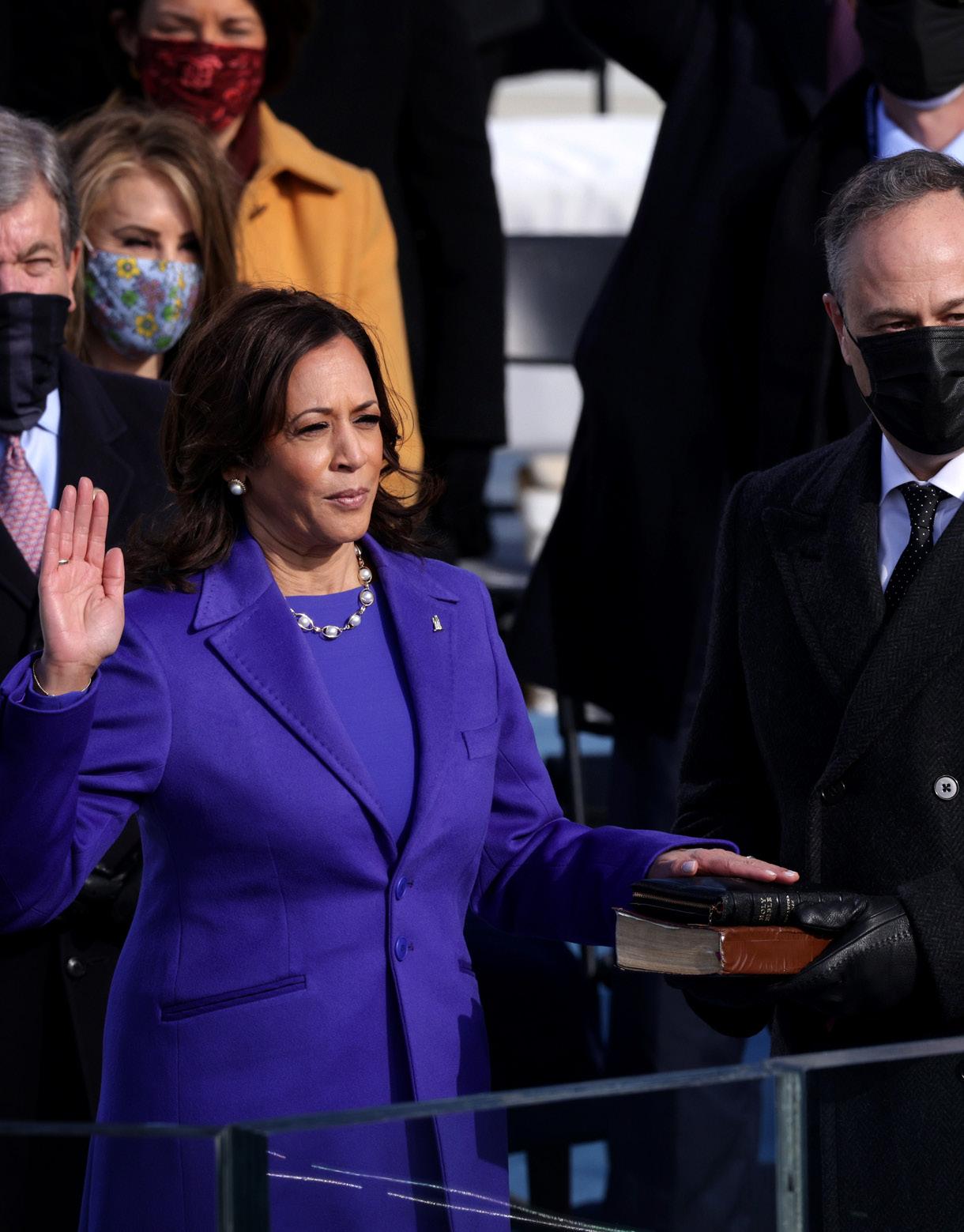
4 minute read
Illinois Moves to Outlaw Money Bond: 'Innocent until Proven Guilty' Becomes a Reality
by Suzanne Hanney
Illinois became the first state to outlaw money bond on January 13 with passage of the Pretrial Fairness Act, part of the Illinois Legislative Black Caucus’s criminal justice reform bill, which Gov. J.B. Pritzker is expected to sign.
“Presumed to be innocent until proven guilty: today is the day that has become a reality for us,” said Kevin Blumenberg of The People’s Lobby, a member organization of the Coalition to End Money Bond and the Illinois Network for Pretrial Justice, during a virtual press conference hosted by the two advocacy groups.
More than 250,000 people are incarcerated in Illinois county jails every year, 90 percent of them pretrial. For a majority, the only reason is because they cannot afford to pay a money bond, according to the Coalition.
“Efforts to build on our lives and maintain them will no longer be threatened by money bond bills. No longer will we have to sit in jail because we don’t have any money, feeling hopeless because we can’t afford to pay a bail,” said Blumenberg, who was a pretrial detainee at age 16.
“I was put in a position where I had to be concerned about the realities of being in a foreign environment: being raped or jumped on.” People in jail are more likely to feel pressured to accept a guilty plea with prosecutors in order to return to their families, he said.
The advocates described other situations where people in jail lose a job and then their home, sometimes even custody of their children, when they are incarcerated for months because of inability to pay bail.
Conversely, The Marshall Project described a Chicagoan identified only as “Flo” who spent 52 days in jail for burglary committed as the result of a gambling addiction because he lacked $7,500 cash for bail. He got out thanks to the nonprofit Chicago Community Bond Fund, which raises money to pay bail for defendants. As a result, Flo was able to help his wife move when they were kicked out of their home, he was able to work odd jobs in warehouses and construction, and he was able to appear in court in suit and tie rather than an orange jumpsuit. He eventually served two years on a plea deal with credit for good behavior.
Constitutionally, there are only two reasons for limiting a person’s pretrial liberty: “to maintain public safety and reasonably assure appearance in court,” an Illinois Supreme Court commission said in a report last April.
Judges would retain discretion under the Pretrial Fairness Act to detain people in cases of domestic violence, sexual offenses, gun offenses and nonprobationable forcible felonies such as murder and attempted murder, said Sharone Mitchell Jr. director of the Illinois Justice Project, a member organization of the Coalition to End Money Bond and the Illinois Network for Pretrial Justice. However, drug and misdemeanor offenses -- “the vast majority, 80 percent of the cases” – will not be eligible for pretrial detention, he said.
“We want to balance the ability of the court to detain individuals that may pose a threat to person or persons, but we also want to ensure that we are reducing the jail population. If there is evidence somebody is a flight risk, the court can detain them.”
States that have tried to end money bond instantly have faced chaos – and attempts to repeal – so the Illinois law will not go into effect for two years, he said. During that time, the state will follow the recommendation of an Illinois Supreme Court task force to gather pretrial data from courthouses in all of the state’s 102 counties on what happens in bond court: who gets released and who doesn’t. But the task force’s bottom line is that money should never be the reason someone is detained.
“It’s all about looking at the individual case. You’re innocent until proven guilty and detention should only be the exception to the rule,” Mitchell said
“This bill stands at the intersection of race, class and gender and over the next two years will break down a system that stands at that intersection so clearly,” said state Rep. Robert Peters (D-Chicago), one of the main organizers behind the bill, along with state Sen. Elgie R. Sims Jr. and state Rep. Justin Slaughter, both Chicago Democrats.
Calling the legislation “a historic combination of advocates, clergy, grassroots organizations, legislators,” Peters said that the bill was on the Black Caucus agenda but got its energy from the streets of 2020: “from yard signs to actual policy. Symbolic justice was not enough. We needed actual policy and we got that today.”
“The passage of the Pretrial Fairness Act represents a victory for racial justice and the Black Lives Matter movement,” said Sharlyn Grace, executive director of the Chicago Community Bond Fund. Since the Coalition began its efforts nearly five years ago, in May 2016, tens of thousands of people supported pretrial freedom by calling their legislators or donating to a bond fund. The legislation had the support of more than 100 community, social service and faith-based organizations. Among them were A Just Harvest, Chicago Appleseed Fund for Justice, Community Renewal Society, Shriver Center on Poverty Law, the Ministry of Chicago Metropolitan Association-Illinois Conference United Church of Christ and Southsiders Organized for Unity and Liberation.

Protesters rally at the Illinois Capitol.
(Coalition to End Money Bond photo).









